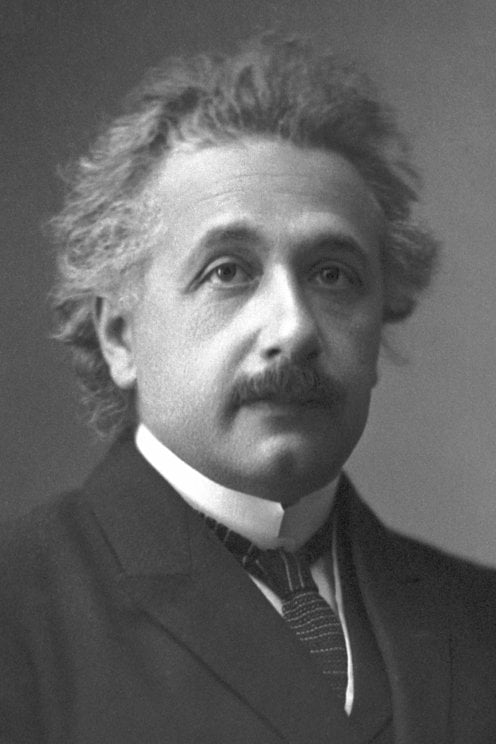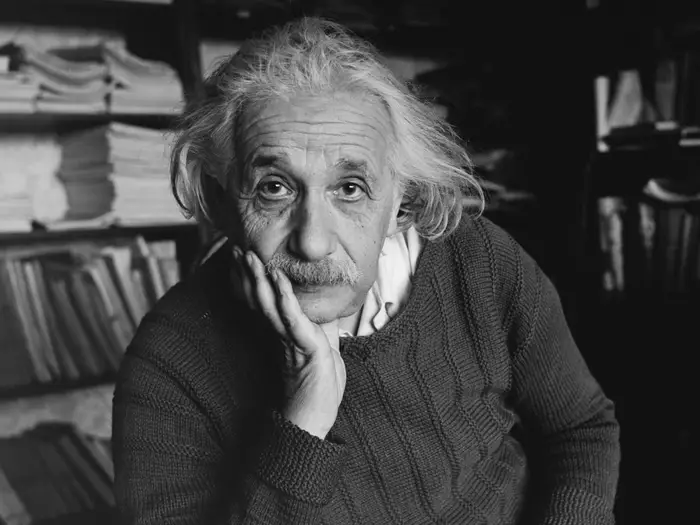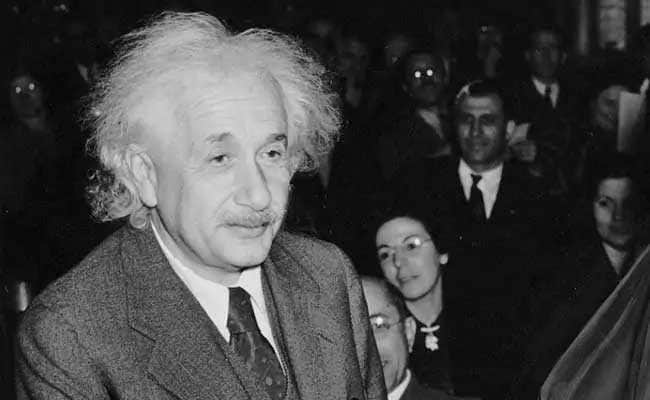The Incredible Journey of Albert Einstein: Curiosity Unleashed
Albert Einstein, the iconic physicist whose name has become synonymous with genius, revolutionized our understanding of the universe with his groundbreaking theories and profound insights. Born on March 14, 1879, in Ulm, in the Kingdom of Württemberg in the German Empire, Einstein's journey from a curious and imaginative child to a towering figure in the world of science is a testament to his insatiable curiosity, relentless pursuit of knowledge, and unparalleled intellect. Einstein's early years were marked by a deep fascination with the mysteries of the natural world. As a child, he was known for his inquisitive mind and unconventional way of thinking, often questioning the established norms and challenging conventional wisdom. Despite struggling in school and facing resistance from traditional educational systems, Einstein's innate curiosity and independent spirit propelled him forward on his journey of discovery.
Einstein's early years were marked by a deep fascination with the mysteries of the natural world. As a child, he was known for his inquisitive mind and unconventional way of thinking, often questioning the established norms and challenging conventional wisdom. Despite struggling in school and facing resistance from traditional educational systems, Einstein's innate curiosity and independent spirit propelled him forward on his journey of discovery.
Einstein's path to scientific prominence began in earnest during his time as a student at the Swiss Federal Polytechnic School in Zurich, where he studied physics and mathematics. It was here that he first began to develop the revolutionary ideas that would reshape our understanding of space, time, and the nature of reality.  In 1905, Einstein published a series of papers that would come to be known as his "Annus Mirabilis" or "miracle year," which laid the foundation for his theory of relativity and forever changed the course of modern physics.
In 1905, Einstein published a series of papers that would come to be known as his "Annus Mirabilis" or "miracle year," which laid the foundation for his theory of relativity and forever changed the course of modern physics.
One of the most famous outcomes of Einstein's "miracle year" was his theory of special relativity, which fundamentally altered our understanding of space and time. In this groundbreaking theory, Einstein proposed that the laws of physics are the same for all observers, regardless of their relative motion. This revolutionary concept challenged centuries of scientific thought and laid the groundwork for future discoveries in physics and cosmology.
Building on the success of his theory of special relativity, Einstein went on to develop his theory of general relativity, which provided a new framework for understanding the force of gravity. According to Einstein's theory, gravity is not a force exerted by one object on another, as Newton had proposed, but rather the result of the curvature of space and time caused by the presence of mass and energy. General relativity revolutionized our understanding of the cosmos, leading to new insights into the nature of black holes, the expansion of the universe, and the origin of the cosmos itself.:max_bytes(150000):strip_icc()/Albert-Einstein-17e63c6b144145a5812cee64a374ae6b.jpg) In addition to his groundbreaking work in theoretical physics, Einstein was also a passionate advocate for peace, social justice, and human rights. Throughout his life, he spoke out against war, violence, and oppression, and lent his support to numerous causes aimed at promoting understanding and cooperation among nations. Einstein's commitment to using his intellect for the betterment of humanity earned him widespread admiration and respect, and he remains an enduring symbol of intellectual courage and moral integrity.
In addition to his groundbreaking work in theoretical physics, Einstein was also a passionate advocate for peace, social justice, and human rights. Throughout his life, he spoke out against war, violence, and oppression, and lent his support to numerous causes aimed at promoting understanding and cooperation among nations. Einstein's commitment to using his intellect for the betterment of humanity earned him widespread admiration and respect, and he remains an enduring symbol of intellectual courage and moral integrity.
Despite his immense contributions to science and society, Einstein remained humble and unassuming throughout his life, always emphasizing the importance of curiosity, imagination, and open-mindedness in the pursuit of knowledge. He believed that science should serve as a tool for understanding the universe and improving the human condition, rather than as a means of accruing power or prestige. Albert Einstein's legacy as one of the greatest scientific minds of all time is unparalleled, his ideas continue to shape our understanding of the universe and inspire future generations of scientists and thinkers. Through his groundbreaking theories, passionate advocacy, and unwavering commitment to truth and justice, Einstein left an indelible mark on the world and remains a towering figure in the annals of human history. As we celebrate his achievements and contributions, we are reminded of the transformative power of curiosity, imagination, and the relentless pursuit of knowledge in unlocking the mysteries of the cosmos and enriching the human experience.
Albert Einstein's legacy as one of the greatest scientific minds of all time is unparalleled, his ideas continue to shape our understanding of the universe and inspire future generations of scientists and thinkers. Through his groundbreaking theories, passionate advocacy, and unwavering commitment to truth and justice, Einstein left an indelible mark on the world and remains a towering figure in the annals of human history. As we celebrate his achievements and contributions, we are reminded of the transformative power of curiosity, imagination, and the relentless pursuit of knowledge in unlocking the mysteries of the cosmos and enriching the human experience.:quality(70)/cloudfront-us-east-1.images.arcpublishing.com/cmg/FN333FJX4RHRDN7UI4T4XX36KA.jpg) Albert Einstein's impact on science and humanity extends far beyond his groundbreaking theories and discoveries. His life and work have inspired countless individuals to pursue careers in science, mathematics, and philosophy, and his ideas continue to shape our understanding of the universe and our place within it.
Albert Einstein's impact on science and humanity extends far beyond his groundbreaking theories and discoveries. His life and work have inspired countless individuals to pursue careers in science, mathematics, and philosophy, and his ideas continue to shape our understanding of the universe and our place within it.
One of Einstein's most enduring legacies is his emphasis on the importance of creativity and imagination in scientific inquiry. He believed that scientific breakthroughs were often the result of intuitive leaps and bold conjectures, rather than purely rational deduction. Einstein himself often credited his own success to his ability to think creatively and visualize complex concepts in novel ways. His famous thought experiments, such as imagining himself riding alongside a beam of light, exemplify his imaginative approach to problem-solving and his willingness to challenge conventional wisdom. Furthermore, Einstein's work has had profound implications for our understanding of the nature of reality and the structure of the universe. His theories of relativity have provided a unified framework for describing the fundamental laws of physics, reconciling seemingly disparate phenomena such as gravity and electromagnetism. Einstein's equations have been tested and confirmed through countless experiments and observations, providing robust support for the validity of his theories.
Furthermore, Einstein's work has had profound implications for our understanding of the nature of reality and the structure of the universe. His theories of relativity have provided a unified framework for describing the fundamental laws of physics, reconciling seemingly disparate phenomena such as gravity and electromagnetism. Einstein's equations have been tested and confirmed through countless experiments and observations, providing robust support for the validity of his theories.
Moreover, Einstein's contributions to the field of cosmology have revolutionized our understanding of the cosmos on the largest scales. His theory of general relativity predicts the existence of phenomena such as black holes and gravitational waves, which have since been observed and studied by astronomers and astrophysicists. Einstein's work has also played a crucial role in shaping our current understanding of the origins and evolution of the universe, providing a framework for theories such as the Big Bang and cosmic inflation.
In addition to his scientific achievements, Albert Einstein was also a passionate advocate for social justice and human rights. Throughout his life, he spoke out against discrimination, inequality, and violence, and lent his support to causes aimed at promoting peace, understanding, and cooperation among nations. Einstein's commitment to using his intellect and influence for the betterment of humanity earned him widespread admiration and respect, and he remains an enduring symbol of intellectual courage and moral integrity. Despite his fame and acclaim, Einstein remained humble and unassuming throughout his life, often downplaying his own achievements and emphasizing the importance of collaboration and humility in scientific inquiry. He believed that science should serve as a tool for understanding the universe and improving the human condition, rather than as a means of accruing power or prestige. Einstein's humility, compassion, and unwavering dedication to truth and justice continue to inspire people around the world, and his legacy as one of the greatest minds in human history remains as potent and enduring as ever.
Despite his fame and acclaim, Einstein remained humble and unassuming throughout his life, often downplaying his own achievements and emphasizing the importance of collaboration and humility in scientific inquiry. He believed that science should serve as a tool for understanding the universe and improving the human condition, rather than as a means of accruing power or prestige. Einstein's humility, compassion, and unwavering dedication to truth and justice continue to inspire people around the world, and his legacy as one of the greatest minds in human history remains as potent and enduring as ever. In conclusion, Albert Einstein's contributions to science, humanity, and our understanding of the universe are unparalleled. His groundbreaking theories and profound insights have revolutionized our understanding of the cosmos and inspired generations of scientists, thinkers, and ordinary people to explore the mysteries of the universe and strive for a better, more enlightened world. As we celebrate his achievements and honor his memory, we are reminded of the transformative power of knowledge, curiosity, and compassion in shaping the destiny of humanity and unlocking the secrets of the cosmos.
In conclusion, Albert Einstein's contributions to science, humanity, and our understanding of the universe are unparalleled. His groundbreaking theories and profound insights have revolutionized our understanding of the cosmos and inspired generations of scientists, thinkers, and ordinary people to explore the mysteries of the universe and strive for a better, more enlightened world. As we celebrate his achievements and honor his memory, we are reminded of the transformative power of knowledge, curiosity, and compassion in shaping the destiny of humanity and unlocking the secrets of the cosmos.






















































